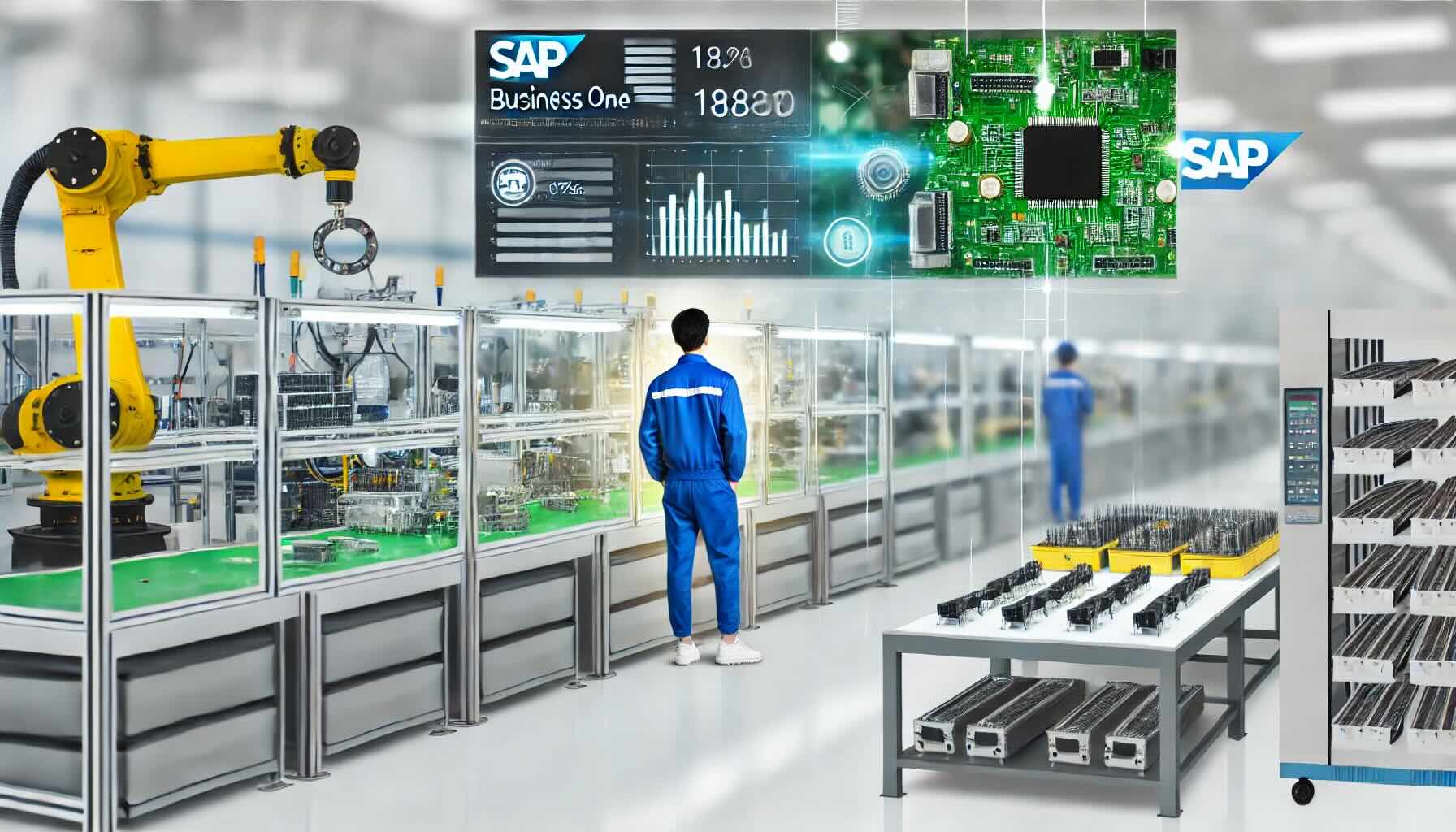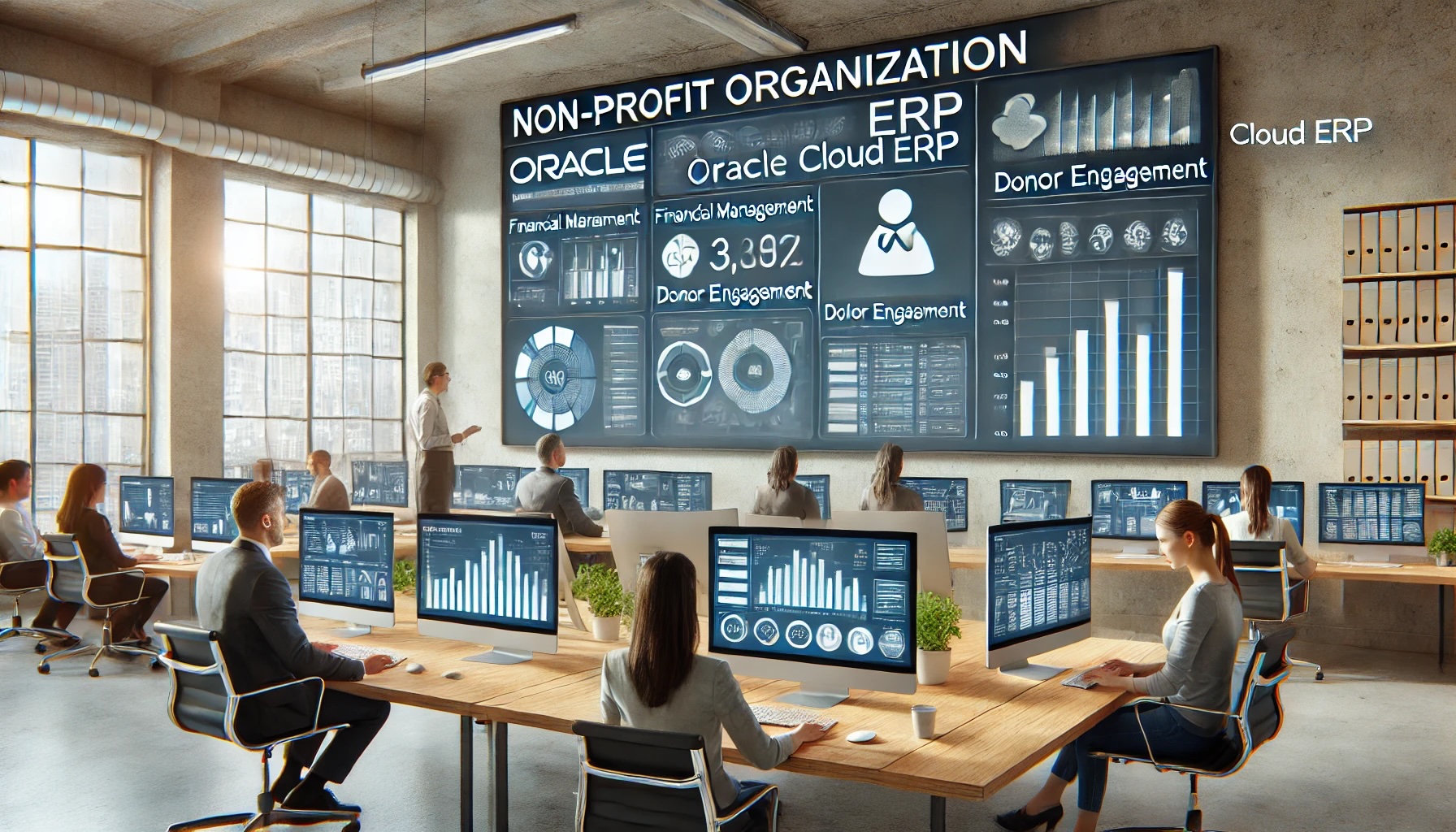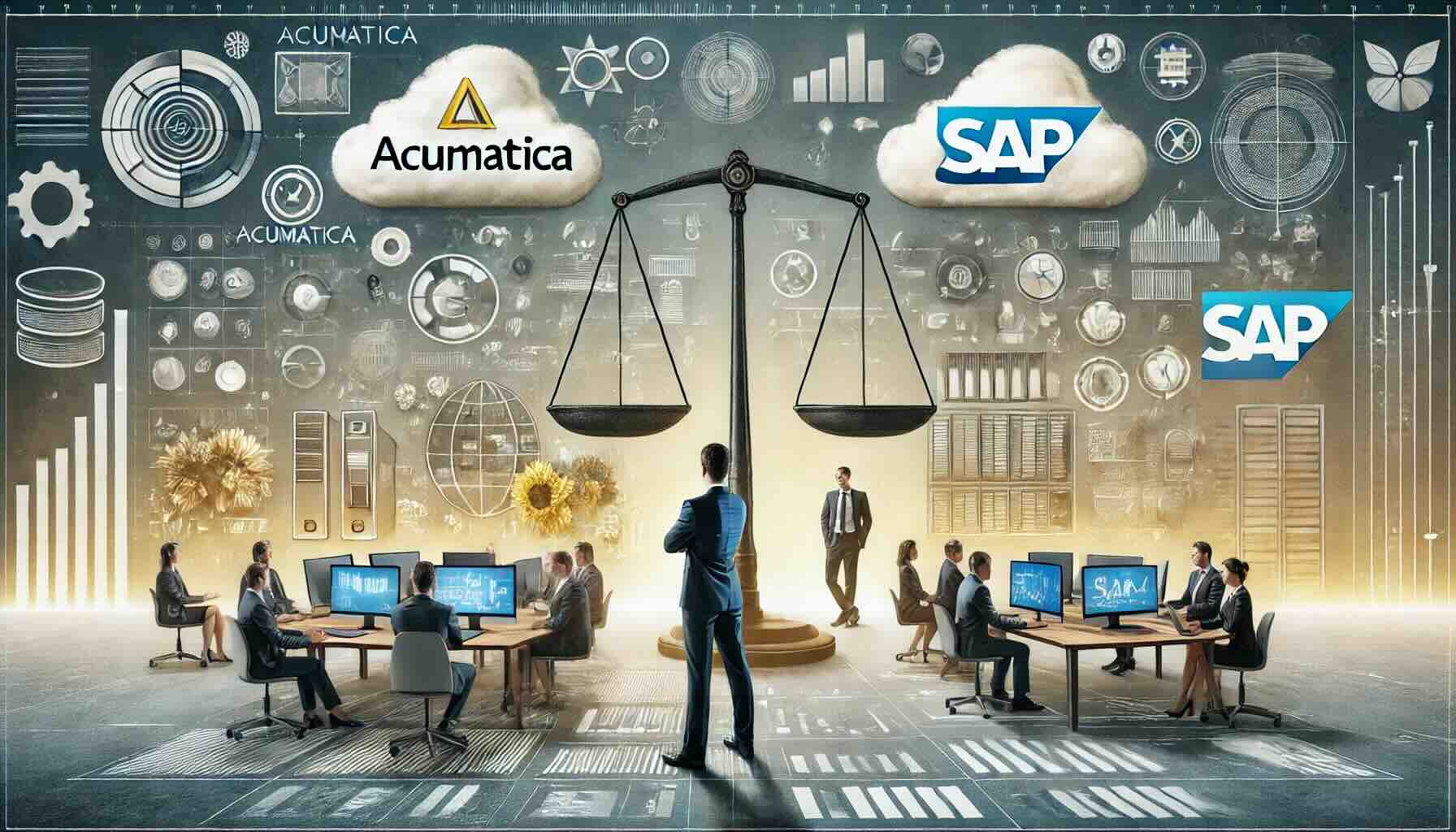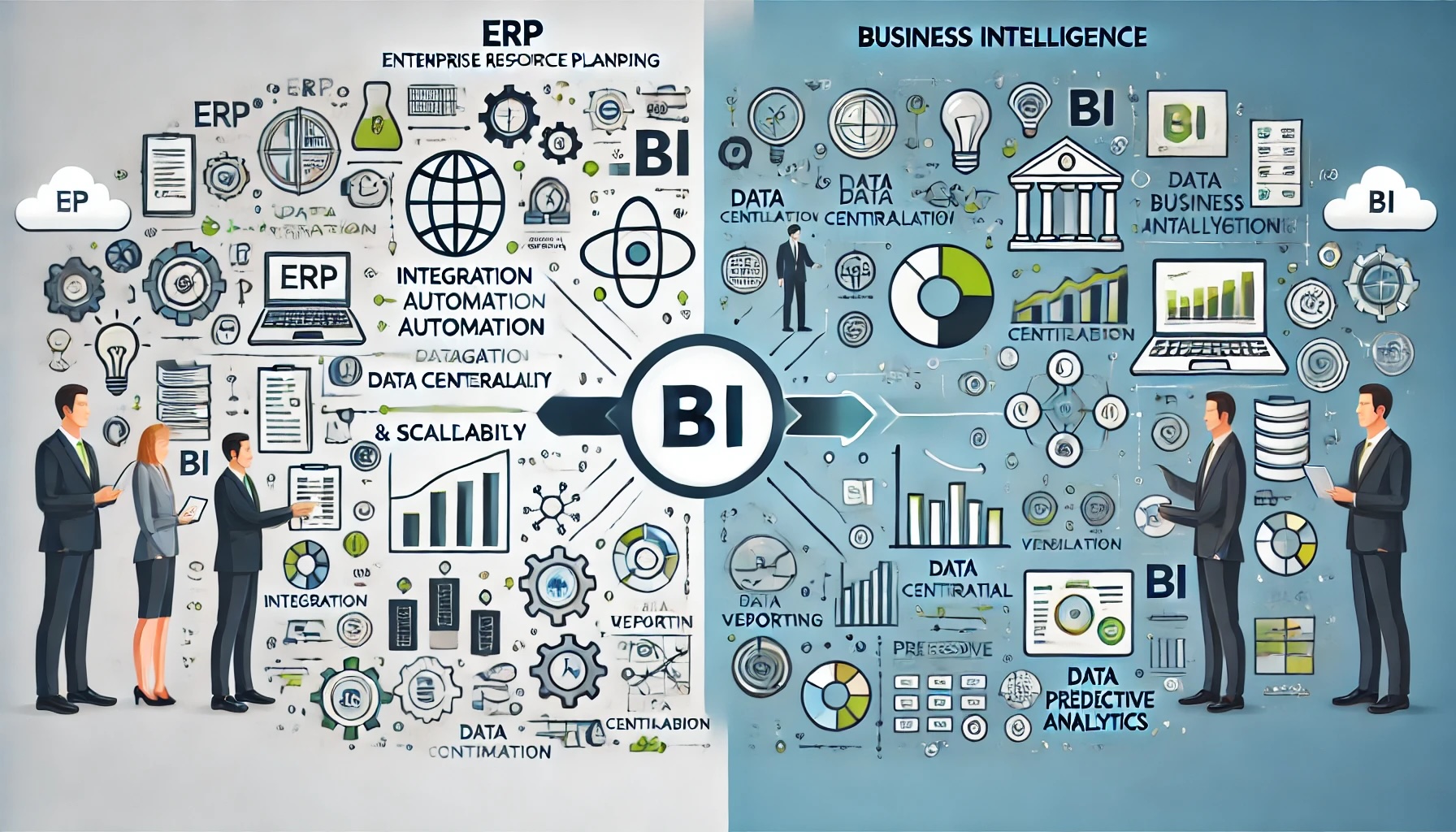Best ERP Systems for Small Businesses

In today’s fast-paced business environment, efficiency and streamlined operations are crucial, especially for small businesses. Enterprise Resource Planning (ERP) systems can significantly enhance a company’s productivity by integrating various functions into one comprehensive system. Choosing the right ERP system can be challenging, given the myriad of options available. This blog will explore the best ERP systems for small businesses, helping you make an informed decision.
Why Small Businesses Need ERP Systems
ERP systems consolidate various business processes such as accounting, human resources, inventory management, and customer relationship management into a single unified system. This integration offers several benefits:
- Improved Efficiency: Automating routine tasks reduces manual errors and frees up time for more strategic activities. For small businesses, where resources are often limited, this improvement in efficiency can be a game-changer. By reducing the time spent on mundane tasks, employees can focus on activities that add more value to the business, such as customer service or product development.
- Enhanced Decision-Making: Real-time data from all departments provides valuable insights for better decision-making. Small business owners can make more informed decisions with accurate and up-to-date information. For instance, real-time inventory data can help avoid stockouts or overstock situations, directly impacting profitability and customer satisfaction.
- Scalability: ERP systems grow with your business, offering more features as your needs evolve. This means that as your small business expands, you won’t need to invest in a completely new system. Instead, you can add new modules or functionalities to your existing ERP system, making it a cost-effective solution for long-term growth.
- Cost Savings: Streamlined operations lead to lower operational costs. By integrating various business processes, an ERP system reduces the need for multiple software solutions and minimizes redundant tasks. This consolidation not only saves money on software licenses but also reduces the training and support costs associated with using multiple systems.
Given these advantages, investing in an ERP system can be a game-changer for small businesses, providing them with the tools needed to compete with larger enterprises.
Top ERP Systems for Small Businesses
1. Odoo
Odoo is an open-source ERP system that is highly customizable and scalable. It offers a wide range of modules, including sales, CRM, project management, inventory, and accounting. This flexibility makes Odoo a popular choice for small businesses that need a tailored solution to meet their unique requirements.
- Pros:
- Modular and customizable: Odoo’s modular structure allows businesses to start with the basic functionalities they need and add more modules as they grow. This customization ensures that businesses only pay for what they use.
- Affordable pricing: Being open-source, Odoo offers a cost-effective solution, especially for small businesses with limited budgets. The community version is free, and there are affordable plans for additional features.
- User-friendly interface: Odoo’s interface is intuitive and easy to navigate, making it accessible for users without extensive technical expertise.
- Cons:
- May require technical expertise for customization: While the platform is highly customizable, setting up and optimizing the system to meet specific needs may require technical knowledge or hiring a developer.
- Some advanced features require additional costs: Although the basic version is free, businesses may need to pay for certain advanced modules or third-party integrations.
Odoo’s versatility and affordability make it a strong contender for small businesses looking for an ERP system that can grow with them.
2. SAP Business One
SAP Business One is designed specifically for small to medium-sized businesses. It integrates key business functions, providing a comprehensive view of operations. Known for its robust functionality, SAP Business One offers tools to manage everything from financials to supply chain management.
- Pros:
- Robust functionality: SAP Business One covers a wide range of business processes, including financial management, sales, customer management, inventory, and production. This comprehensive coverage ensures that all critical areas of the business are integrated and optimized.
- Strong support network: SAP has a global network of partners and consultants who can provide implementation, training, and support services. This extensive support network can be invaluable for small businesses that may not have in-house IT expertise.
- Scalable with business growth: As your business grows, SAP Business One can scale with you. It offers advanced features and capabilities that can support the increasing complexity of a growing business.
- Cons:
- Higher initial cost: The initial investment for SAP Business One can be significant, which might be a barrier for very small businesses or startups with limited budgets.
- Implementation can be complex: Implementing SAP Business One may require a considerable amount of time and resources. The complexity of the system might necessitate professional assistance, which can add to the overall cost.
Despite the higher initial investment, SAP Business One is a powerful ERP solution for small businesses that are planning for long-term growth and need a system that can scale with them.
3. NetSuite
NetSuite is a cloud-based ERP system known for its extensive functionality and flexibility. It covers financial management, CRM, eCommerce, and more. As a cloud-based solution, NetSuite offers the advantage of accessibility from anywhere, making it ideal for businesses with remote teams or multiple locations.
- Pros:
- Comprehensive suite of applications: NetSuite provides a wide range of modules, including financial management, CRM, eCommerce, and inventory management. This comprehensive suite ensures that all aspects of the business are integrated and streamlined.
- Real-time data access: Being cloud-based, NetSuite allows for real-time data access, enabling businesses to make informed decisions based on the most up-to-date information. This feature is particularly beneficial for businesses that need to respond quickly to market changes.
- Highly scalable: NetSuite can grow with your business, offering advanced features and capabilities as your needs evolve. The platform’s scalability ensures that you won’t outgrow your ERP system as your business expands.
- Cons:
- Expensive for very small businesses: While NetSuite offers a powerful solution, its cost can be prohibitive for very small businesses or startups with limited budgets. The pricing structure may not be suitable for businesses that only need basic functionalities.
- Requires time for implementation and training: Implementing NetSuite and training employees to use it effectively can take time. This process may require a significant investment in terms of time and resources, which can be challenging for small businesses.
NetSuite’s extensive functionality and scalability make it a strong choice for small businesses looking for a cloud-based ERP solution that can support their growth and evolving needs.
4. Zoho ERP
Zoho ERP offers a wide range of applications tailored for small businesses. It integrates seamlessly with other Zoho products, making it a versatile choice. Zoho’s affordability and ease of use make it an attractive option for small businesses that need a straightforward ERP solution without a steep learning curve.
- Pros:
- Affordable: Zoho ERP is competitively priced, making it accessible for small businesses with limited budgets. The platform offers a variety of pricing plans, allowing businesses to choose the one that best fits their needs.
- Easy to use: Zoho’s interface is designed with user-friendliness in mind, ensuring that even users without extensive technical expertise can navigate the system effectively. This ease of use reduces the time and resources needed for training.
- Extensive integrations: Zoho ERP integrates seamlessly with other Zoho products, such as Zoho CRM, Zoho Books, and Zoho Inventory. This integration provides a cohesive ecosystem that simplifies business operations.
- Cons:
- Limited advanced features: While Zoho ERP offers a comprehensive set of basic functionalities, it may lack some of the advanced features found in more expensive ERP systems. Businesses with complex needs may find Zoho’s capabilities somewhat limited.
- Customer support can be slow: Some users have reported slow response times from Zoho’s customer support. For businesses that rely heavily on timely support, this could be a drawback.
Zoho ERP’s affordability and ease of use make it an excellent choice for small businesses looking for a cost-effective and straightforward ERP solution.
5. Microsoft Dynamics 365 Business Central
Microsoft Dynamics 365 Business Central is a comprehensive business management solution. It combines CRM and ERP capabilities, enabling businesses to streamline their operations. As part of the Microsoft ecosystem, Business Central integrates seamlessly with other Microsoft products, such as Office 365, making it a familiar and powerful tool for businesses already using Microsoft applications.
- Pros:
- Integration with Microsoft products: Business Central integrates seamlessly with other Microsoft products, providing a cohesive and efficient workflow. This integration is particularly beneficial for businesses already using Microsoft Office 365, as it allows for smooth data exchange and collaboration.
- Cloud-based and accessible from anywhere: As a cloud-based solution, Business Central offers the flexibility of accessing the system from anywhere with an internet connection. This feature is ideal for businesses with remote teams or multiple locations.
- Scalable and flexible: Business Central can scale with your business, offering a range of features and capabilities to support growth. The platform’s flexibility allows businesses to customize the system to meet their specific needs.
- Cons:
- Can be costly: While Business Central offers a robust set of features, the cost can be prohibitive for very small businesses or startups with limited budgets. The pricing structure may not be suitable for businesses that only need basic functionalities.
- Implementation requires time and resources: Implementing Business Central and training employees to use it effectively can take time and resources. This process may require professional assistance, which can add to the overall cost.
Microsoft Dynamics 365 Business Central’s integration with Microsoft products and its robust features make it a strong choice for small businesses looking for a comprehensive and scalable ERP solution.
Choosing the Right ERP System
Selecting the best ERP system for your small business depends on various factors:
- Budget: Consider the initial and ongoing costs of the ERP system. While some systems may have a higher upfront cost, they might offer more long-term value through scalability and advanced features. It’s essential to balance the cost with the benefits the system provides to ensure you’re making a wise investment.
- Business Needs: Identify the specific modules and features your business requires. Each business is unique, and the right ERP system should address your specific operational needs. Whether you need strong inventory management, robust financial reporting, or advanced CRM capabilities, make sure the system you choose aligns with your business goals.
- Scalability: Ensure the system can grow with your business. An ERP system should not only meet your current needs but also be flexible enough to accommodate future growth. Look for a system that can add new modules or expand its capabilities as your business evolves.
- Ease of Use: Choose a system that your team can easily adopt and use. A user-friendly interface and intuitive navigation are crucial for ensuring that your employees can quickly learn and effectively use the system. This ease of use reduces the learning curve and minimizes disruptions to your operations.
- Support and Training: Consider the availability of customer support and training resources. Implementing a new ERP system can be challenging, and having access to reliable support and training can make a significant difference. Look for vendors that offer comprehensive support packages, including training materials, online resources, and responsive customer service.
By carefully evaluating these factors, you can choose the ERP system that best fits your small business’s needs and positions you for long-term success.
Conclusion
Investing in the best ERP system for small businesses can significantly enhance operational efficiency and drive growth. Odoo, SAP Business One, NetSuite, Zoho ERP, and Microsoft Dynamics 365 Business Central are among the top choices, each offering unique features and benefits. Carefully evaluate your business needs, budget, and long-term goals to select the most suitable ERP system.
By integrating an ERP system, your small business can achieve streamlined operations, improved decision-making, and sustained growth, positioning you for long-term success.
To compare these ERP solutions and many more, you can use our new AI-powered Compare ERP tool. It’s free to use and you get a guaranteed discount on your first year’s licence fees with a referral from Compare ERP.









